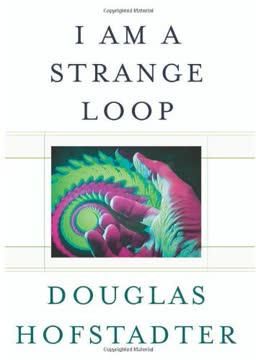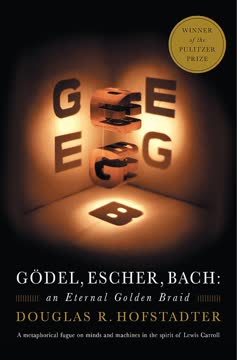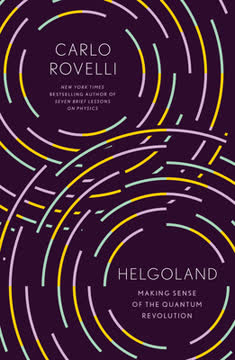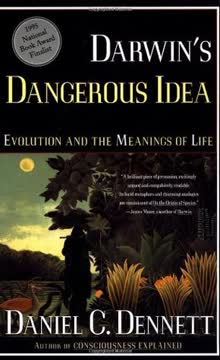つの重要なポイント
1. 自由意志は決定論と両立し、進化によって形作られる
私たちは単なる賢い獣でもなく、危険な世界で自分を守るために工夫するエージェントでもない。また、無意識に互いの利益のために集まる群れの動物でもない。
進化的視点。 自由意志と決定論は相互排他的ではない。私たちが選択を行い、道徳的に責任を持つエージェントである能力は、自然選択を通じて数十億年にわたって進化してきた。この過程は、自己反省や意思決定の能力を含む私たちの認知能力を形作ってきた。
自由度の増加。 生物がより複雑になるにつれて、行動の自由度が増加した。単純な生物は限られた選択肢しか持たないが、人間は膨大な行動の選択肢を持っている。この行動の柔軟性の増加は、より適応力のある生物を好む進化の過程の結果である。
両立主義。 著者は自由意志が決定論と両立するという両立主義的見解を主張している。この視点は、私たちの選択が遺伝子、環境、過去の経験によって影響されることを認識しつつも、その制約の中で自由で責任あるエージェントであり続けることができるとする。
2. 意識と意思決定は脳内の分散プロセスである
あなたはループの外にいるのではなく、あなた自身がループである。
分散認知。 意識と意思決定は脳の特定の領域に局在しているのではなく、複数の神経ネットワークにわたる分散プロセスである。これは、意思決定を行う中央集権的な「自己」の概念に挑戦するものである。
意思決定のタイミング。 ベンジャミン・リベットらの研究によれば、意思決定に関連する脳活動は、私たちが意識的に選択を認識する前に検出されることが示されている。しかし、これは自由意志を否定するものではなく、意思決定プロセスの複雑な性質を明らかにするものである。
意識的意志の錯覚。 私たちの意識的な思考が直接的に行動を引き起こすと感じるかもしれないが、現実はもっと複雑である。私たちの決定は意識的および無意識的なプロセスの相互作用から生じ、意識はしばしば行動の唯一の原因ではなく、その解釈者として機能する。
3. 文化的進化とミームは人間のエージェンシーに重要な役割を果たす
文化は物事を容易にするか、あるいは可能にする。
ミームと文化的伝達。 人間の文化、すなわちアイデア、信念、慣習は、生物学的進化に似たプロセスを通じて進化する。ミーム、すなわち文化的情報の単位は、広がり複製され、私たちの認知環境を形作る。
文化的足場。 私たちが意思決定を行い、道徳的エージェントとして行動する能力は、私たちが受け継ぐ文化的ツールや概念に大きく影響される。言語、社会規範、制度は、より洗練されたエージェンシーの形態を可能にする枠組みを提供する。
遺伝子と文化の共進化。 人間の生物学的進化と文化的進化は互いに影響し合い、独自の認知的ニッチを作り出してきた。この共進化は、私たちの行動のレパートリーと意思決定能力を劇的に拡大した。
4. 道徳的責任は形而上学的事実ではなく社会的実践から生じる
非難は信用の代償であり、ほとんどの場合、私たちはそれを喜んで支払う。
責任の社会的起源。 道徳的責任は宇宙の形而上学的事実ではなく、称賛、非難、罰の実践から生じる社会的構築物である。これらの実践は重要な社会的機能を果たし、私たちの行動を形作る。
交渉された閾値。 道徳的責任の基準は固定されておらず、社会内で継続的に交渉される。人間の行動や認知に関する理解が進むにつれて、これらの閾値は変わる可能性がある。
実用的アプローチ。 道徳的責任を抽象的な形而上学的概念に基づけるのではなく、責任の帰属の実際の結果に焦点を当てるべきである。このアプローチは、エージェンシーと罪の理解をより柔軟で微妙なものにする。
5. 自己制御とコミットメントの問題は自由意志の理解を形作る
成功するまで偽装せよ。
時間間選択。 私たちの最も重要な決定の多くは、即時の報酬と将来の報酬との間のトレードオフを伴う。満足を遅らせ、コミットメントを行う能力は、自由意志と道徳的責任の概念にとって重要である。
双曲割引。 人間は将来の報酬を双曲的に割引する傾向があり、時間の経過とともに選好の逆転が生じることがある。これにより、自己制御の内部的な葛藤や課題が生じる。
自己制御の戦略。 私たちは短期的な思考傾向を克服するためのさまざまな戦略を開発してきた:
- 事前コミットメント装置
- 環境の修正
- 社会的支援とアカウンタビリティ
- メンタルリハーサルとビジュアライゼーション
これらの戦略は、私たちの行動を長期的な目標に一致させ、エージェンシーとコントロールの感覚を高める。
6. 科学は私たちの自由の概念を脅かすのではなく強化する
科学的知識は避けられない道であり、唯一の道である。
可能性の拡大。 科学的知識は私たちの行動に影響を与える要因の理解を深め、情報に基づいた選択を行い、望ましくない結果を避ける能力を拡大する。
神経科学と心理学。 これらの分野の進展は、意思決定プロセス、認知バイアス、意識の性質に関する洞察を提供する。これらの知識は自由意志を損なうのではなく、より良い決定を下し、制約を克服する力を与える。
技術的強化。 科学と技術は人間のエージェンシーを強化する新しいツールを提供する:
- 認知強化剤
- 義肢装置
- 治療的介入
- 教育技術
これらの進展は、自己制御と合理的意思決定の能力を高め、人間の自由の範囲を拡大する可能性がある。
7. 人間の自由の未来は形而上学ではなく倫理的および政治的選択にかかっている
私たちは今、私たちと私たちの子孫がどのように生きるかを決定する条件を作り出すための力をかつてないほど持っている。
焦点のシフト。 人間の自由に関する最も差し迫った問題は形而上学的ではなく、倫理的および政治的である。私たちは社会と制度をどのように構築して人間の繁栄と責任あるエージェンシーを促進するかを決定しなければならない。
進化する概念。 自由と責任の理解は、新しい知識を得て新しい課題に直面するにつれて進化し続ける。科学的および社会的進歩に照らして、私たちの概念と実践を見直す意欲が必要である。
倫理的課題。 新興技術と科学的発見は新しい倫理的ジレンマを引き起こす:
- 遺伝子工学
- 人工知能
- 脳-コンピュータインターフェース
- 認知強化
これらの課題に対処するには、私たちの価値観とどのような未来を創造したいかを慎重に考慮する必要がある。著者は、自由意志の時代遅れの形而上学的概念に固執するのではなく、科学的理解に基づいた倫理と政治への自然主義的アプローチを採用すべきだと主張している。
Human Translator: この適応は、ダニエル・デネットの著書『Freedom Evolves』の主要なアイデアを効果的に捉えている。科学的決定論と両立する人間の自由と道徳的責任の自然主義的、進化的な説明を提示している。適応は、デネットの両立主義の主張、意識と意思決定の分散的性質、文化が人間のエージェンシーを形作る役割、道徳的責任への実用的アプローチを強調している。また、自由意志の理解における自己制御とコミットメントの重要性を強調し、科学的知識が私たちの自由を強化することを主張している。最後のセクションでは、デネットの見解として、人間の自由の未来は形而上学的な推測ではなく、科学的理解に基づいた倫理的および政治的選択に依存していることを強調している。
最終更新日:
FAQ
What's Freedom Evolves about?
- Exploration of Free Will: Freedom Evolves by Daniel C. Dennett delves into the concept of free will, examining it through the lenses of determinism and evolution. Dennett argues that free will is not a supernatural phenomenon but a product of evolutionary processes.
- Naturalistic Perspective: The book presents a naturalistic view, suggesting that our minds and consciousness are products of evolutionary processes. Dennett aims to dismantle the fear that determinism negates our moral agency and the significance of our choices.
- Cultural and Biological Interplay: Dennett discusses how cultural evolution and biological evolution interact to shape human behavior and moral responsibility, emphasizing that our understanding of freedom must incorporate insights from both fields.
Why should I read Freedom Evolves?
- Challenging Traditional Views: The book challenges long-held beliefs about free will and determinism, making it essential for anyone interested in philosophy, psychology, or neuroscience.
- Interdisciplinary Approach: Dennett combines philosophy, neuroscience, and evolutionary biology, making it a valuable read for those interested in how these fields intersect.
- Relevance to Modern Issues: The discussions are relevant to contemporary debates about free will, ethics, and the implications of neuroscience on our understanding of human behavior.
What are the key takeaways of Freedom Evolves?
- Freedom is Evolved: Dennett argues that freedom is not a mystical quality but an evolved trait that can be understood through science.
- Determinism vs. Free Will: The book emphasizes that determinism does not eliminate free will; rather, it redefines it, allowing for meaningful choices within a deterministic framework.
- Understanding Human Nature: Understanding our biological and evolutionary roots can enhance our appreciation of freedom and help us navigate moral and ethical dilemmas more effectively.
What are the best quotes from Freedom Evolves and what do they mean?
- "We don't have to have immaterial souls... to live up to our hopes.": This quote encapsulates Dennett's argument that free will can exist without supernatural explanations, grounding consciousness and morality in natural science.
- "The atmosphere of free will is another sort of environment.": Dennett compares free will to an evolving atmosphere, indicating that our understanding of freedom is shaped by cultural and social interactions.
- "The truth really will set you free.": This emphasizes the importance of understanding the truth about our nature and freedom, suggesting that knowledge and self-awareness empower meaningful choices.
How does Daniel C. Dennett define free will in Freedom Evolves?
- Evolved Capacity: Dennett defines free will as an evolved capacity that allows individuals to make choices based on their desires and reasoning.
- Practical Reasoning: He emphasizes the role of practical reasoning in decision-making, where individuals weigh their desires and beliefs to arrive at a choice.
- Moral Responsibility: Dennett connects free will to moral responsibility, asserting that individuals can be held accountable for their actions even if those actions are determined.
What is the relationship between determinism and free will in Freedom Evolves?
- Compatibility Argument: Dennett argues that determinism and free will are compatible, challenging the traditional view that they are mutually exclusive.
- Elbow Room: He introduces the concept of "elbow room," which refers to the space for making choices within a deterministic framework.
- Causal Chains: Dennett emphasizes that while our actions may be determined by prior events, we still have the capacity to make meaningful choices.
How does Freedom Evolves address the concept of moral responsibility?
- Moral Agency: Dennett asserts that moral responsibility is not undermined by determinism; rather, it is redefined within a deterministic framework.
- Ultimate Responsibility: He introduces the idea of "ultimate responsibility," which refers to the capacity of individuals to be the source of their actions.
- Cultural Context: The book emphasizes the role of culture and social interactions in shaping our understanding of moral responsibility.
What is the significance of the "readiness potential" in Freedom Evolves?
- Brain Activity Preceding Action: The readiness potential is a measure of brain activity that occurs before a conscious decision to act, suggesting that decisions may be initiated unconsciously.
- Implications for Free Will: This finding raises questions about the nature of free will, as it implies that our conscious awareness of decisions may come after the brain has already begun the process of action.
- Challenge to Traditional Views: Dennett uses this concept to challenge the notion that free will is purely a conscious, deliberate process.
How does Freedom Evolves redefine the concept of self?
- Self as a Process: Dennett argues that the self is not a static entity but rather a dynamic process shaped by interactions and experiences.
- Narrative Construction: The book emphasizes that individuals construct their identities through narratives and social interactions.
- Agency and Responsibility: By viewing the self as a process, Dennett suggests that individuals can take ownership of their actions while acknowledging the influences of their environment and biology.
What role does meme theory play in Freedom Evolves?
- Cultural Replicators: Dennett introduces the concept of memes as units of cultural transmission that replicate and evolve.
- Memetic Selection: The book explores how certain memes can become dominant within a culture, influencing societal norms and values.
- Impact on Morality: Dennett suggests that memes play a crucial role in the development of moral frameworks.
How does Freedom Evolves challenge traditional views on determinism?
- Determinism vs. Free Will: Dennett argues that determinism does not negate free will; rather, it provides a framework for understanding human agency.
- Complexity of Decision-Making: The book highlights the complexity of decision-making processes, emphasizing that human behavior cannot be reduced to simple cause-and-effect relationships.
- Moral Responsibility: Dennett contends that moral responsibility can coexist with determinism, as individuals can still be held accountable for their actions.
レビュー
自由の進化は自由意志と決定論を探求し、決定論的な宇宙においても自由意志が存在し得ると論じている。デネットは、自由が自然選択を通じて進化し、科学的決定論と矛盾しないと主張している。レビューは賛否両論であり、デネットのアプローチを称賛する声もあれば、彼の文体を難解と感じる声もある。批評家たちは、彼が重要な用語の定義を変更し、決定論と自由意志の矛盾を完全には解決していないと指摘している。多くの読者はデネットの思考を刺激するアイデアを評価しているが、本書が難解で時折理解しにくいと感じている。
Similar Books


















